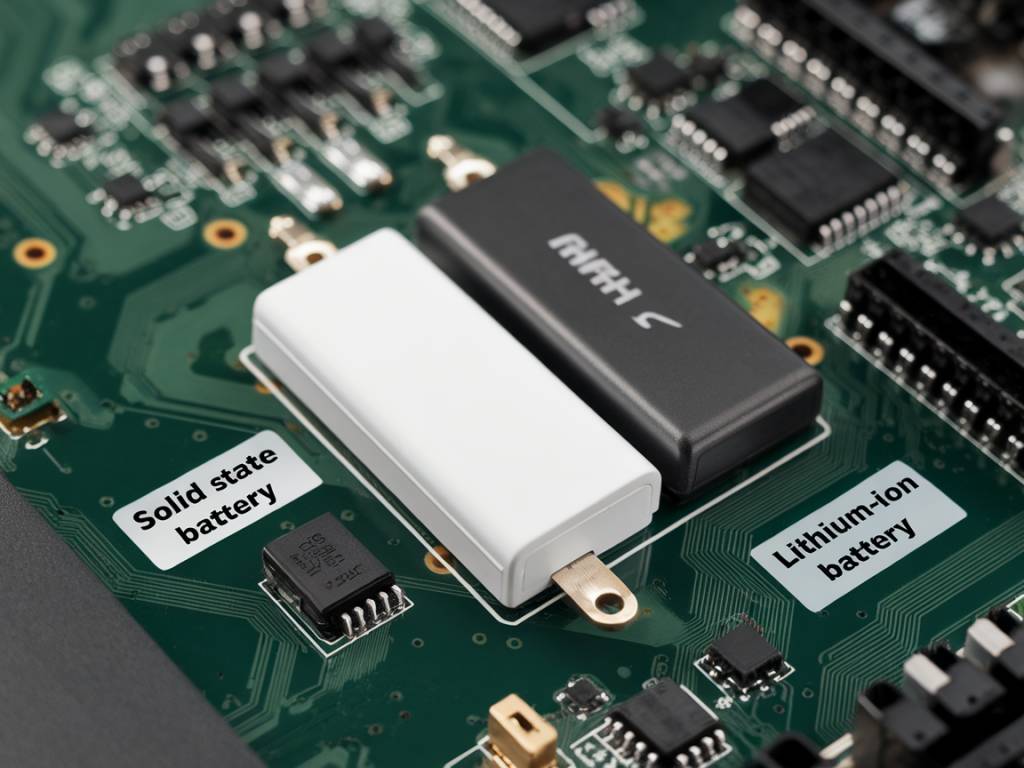In recent years, the debate between solid-state batteries and lithium-ion batteries has intensified, especially within the context of electric vehicles (EVs) and portable electronics. As the technology continues to evolve, understanding the differences and potential advantages of each type of battery becomes crucial for both consumers and industry professionals. This article delves into the details of solid-state vs. lithium-ion batteries, discussing their construction, performance, safety, and future prospects.
What are Solid-State Batteries?
Solid-state batteries are an advanced type of battery technology that utilizes solid electrodes and a solid electrolyte, unlike traditional lithium-ion batteries which use liquid or gel-based electrolytes. The solid electrolytes can be made from various materials, including ceramics and glass, allowing for a wide array of potential configurations.
The main components of solid-state batteries include:
- Solid Electrolyte: A solid material, such as ceramic or glass, that facilitates the movement of ions between the anode and the cathode.
- Anode: Typically made from lithium metal or other materials that can store and release lithium ions efficiently.
- Cathode: Composed of materials like lithium cobalt oxide or lithium iron phosphate, which interact with the ions during the charge and discharge cycles.
What are Lithium-Ion Batteries?
Lithium-ion batteries are the most commonly used type of rechargeable batteries today, found in everything from smartphones and laptops to electric vehicles. They utilize a liquid or gel-based electrolyte to transport lithium ions between the anode and cathode during charge and discharge cycles.
The main components of lithium-ion batteries include:
- Liquid Electrolyte: A liquid solution, usually lithium salt in an organic solvent, that allows ions to move between the electrodes.
- Anode: Generally made of graphite, which serves as a host for lithium ions.
- Cathode: Often composed of a lithium metal oxide such as lithium cobalt oxide or lithium iron phosphate.
Performance Comparison
When evaluating the performance of solid-state batteries versus lithium-ion batteries, several factors need to be considered, including energy density, charging time, and cycle life.
- Energy Density: Solid-state batteries generally have a higher energy density compared to lithium-ion batteries. This means they can store more energy in the same amount of space, making them ideal for applications requiring lightweight and compact energy storage solutions, such as electric vehicles.
- Charging Time: Solid-state batteries have the potential for faster charging times due to their higher ionic conductivity. However, this is still an area of ongoing research, and current solid-state batteries do not yet universally outperform lithium-ion batteries in this regard.
- Cycle Life: Lithium-ion batteries typically offer a longer cycle life compared to current solid-state batteries. A battery’s cycle life refers to the number of complete charge and discharge cycles it can undergo before its capacity begins to degrade significantly.
Safety
Safety is a critical consideration for any battery technology, particularly for applications like electric vehicles where failures can have serious consequences.
- Thermal Stability: Solid-state batteries are considered safer than lithium-ion batteries because they are less prone to thermal runaway, a condition where the battery’s temperature rapidly increases, potentially causing a fire or explosion. The solid electrolytes are less likely to combust compared to the flammable liquid electrolytes used in lithium-ion batteries.
- Mechanical Stability: Solid-state batteries are generally more robust and less vulnerable to physical damage. This makes them more resistant to issues such as leakage or punctures, contributing to their overall safety profile.
- Dendrite Formation: One of the significant challenges with lithium-ion batteries is the formation of dendrites—tiny, needle-like structures that can grow from the anode to the cathode through the electrolyte, causing a short circuit. Solid-state batteries are less prone to dendrite formation, enhancing their safety and longevity.
Cost Considerations
The cost of battery production is a major factor influencing their adoption in various industries. Currently, lithium-ion batteries are more cost-effective to produce compared to solid-state batteries, primarily due to economies of scale and mature manufacturing processes.
- Material Costs: Solid-state batteries often require more expensive materials, such as lithium metal for the anode and advanced ceramics for the electrolyte.
- Manufacturing Complexity: The production of solid-state batteries involves more complex processes and technologies that are still in the development stage, leading to higher costs.
- Economies of Scale: Lithium-ion battery production has benefited from decades of optimization and scale, significantly reducing costs. Solid-state batteries have yet to reach this level of manufacturing maturity.
Current Applications and Future Potential
While both solid-state and lithium-ion batteries have their own sets of advantages and challenges, their applications and future potential differ in significant ways.
Current Applications
- Lithium-Ion Batteries: Widely used in consumer electronics, electric vehicles, and grid storage solutions. The technology is well-understood and widely adopted, making it the current standard in various applications.
- Solid-State Batteries: Still largely in the research and development phase, with some initial applications in specialized areas requiring high energy density and safety, such as aerospace and medical devices.
Future Potential
- Electric Vehicles: Solid-state batteries hold significant promise for the future of electric vehicles, potentially offering higher energy density, shorter charging times, and enhanced safety. Major automotive manufacturers are investing heavily in this technology, anticipating its breakthrough in the coming years.
- Consumer Electronics: The lightweight and compact nature of solid-state batteries could revolutionize the design of portable electronics, enabling thinner and more powerful devices.
- Renewable Energy Storage: The higher energy density and improved safety of solid-state batteries may make them ideal for large-scale energy storage solutions, particularly in conjunction with renewable energy sources like solar and wind power.
In summary, both solid-state and lithium-ion batteries offer unique advantages and challenges. While lithium-ion batteries remain the current standard due to their established technology and cost-effectiveness, solid-state batteries represent the future of energy storage with their promise of higher energy density, improved safety, and potential for faster charging times. As research and development in solid-state technology continue to advance, we can expect to see more widespread adoption and transformative impacts across various industries.

